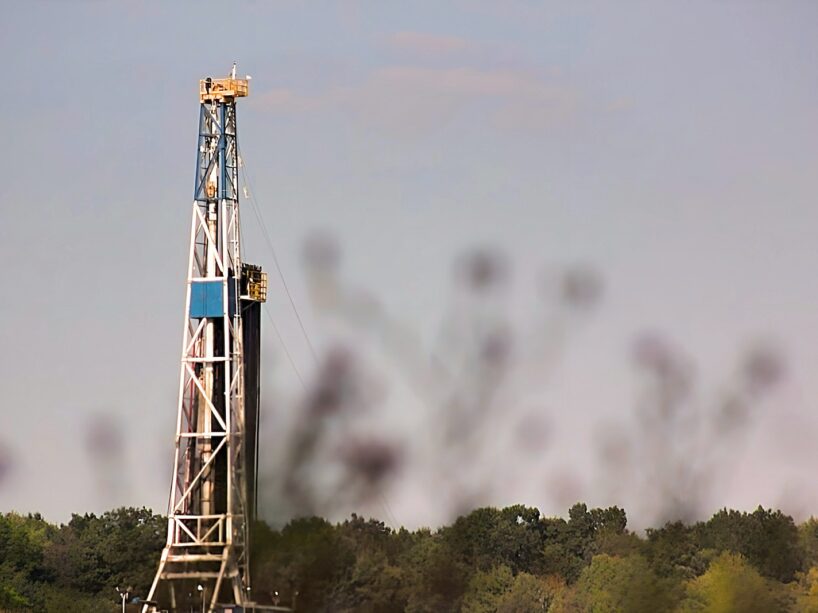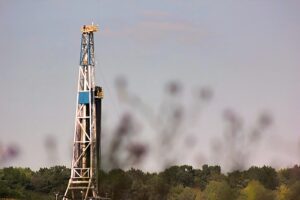"Unlock all the oil with fracking Explainer: What is fracking?"
The Pros and Cons of Fracking: What You Need to Know
Fracking, or hydraulic fracturing, is a controversial method of extracting natural gas and oil from shale rock. It has been used in the United States since the 1940s but has become increasingly popular in recent years. While it has been credited with helping to reduce the nation’s dependence on foreign oil, it has also been linked to a number of environmental and health concerns. Here’s what you need to know about the pros and cons of fracking.
Pros:
1. Increased Energy Independence: Fracking has helped to reduce the United States’ dependence on foreign oil, as it has allowed for the extraction of oil and natural gas from shale rock. This has helped to reduce the nation’s reliance on foreign sources of energy.
2. Job Creation: Fracking has created thousands of jobs in the United States, as it requires a large number of workers to operate the equipment and manage the sites.
3. Lower Energy Prices: Fracking has helped to reduce the cost of energy, as it has increased the supply of natural gas and oil. This has resulted in lower energy prices for consumers.
Cons:
1. Environmental Concerns: Fracking has been linked to a number of environmental concerns, including air and water pollution, as well as the potential for earthquakes.
2. Health Concerns: There are also concerns about the potential health risks associated with fracking, including the potential for contaminated drinking water and increased exposure to toxic chemicals.
3. Economic Impact: Fracking has had a negative impact on some communities, as it has caused property values to decline and has disrupted the local economy.
Overall, fracking has both its advantages and disadvantages. It has helped to reduce the nation’s dependence on foreign oil and has created jobs, but it has also been linked to a number of environmental and health concerns. It is important to weigh the pros and cons of fracking before making a decision about whether or not to support it.
The Environmental Impact of Fracking: What You Should Know
Fracking, or hydraulic fracturing, is a process used to extract natural gas and oil from shale rock. It involves drilling deep into the earth and injecting a mixture of water, sand, and chemicals at high pressure to fracture the rock and release the gas or oil. While fracking has been used for decades, it has become increasingly popular in recent years due to advances in technology and the availability of new sources of natural gas and oil.
However, fracking has been controversial due to its potential environmental impacts. The process can contaminate groundwater with chemicals and methane, and can also cause air pollution. Fracking can also lead to increased seismic activity, or earthquakes, due to the pressure of the injected fluids.
In addition, fracking can have an impact on the local environment. The process requires large amounts of water, which can strain local water supplies. It also requires the construction of roads and pipelines, which can disrupt wildlife habitats and lead to soil erosion.
Finally, fracking can lead to the release of methane, a potent greenhouse gas, into the atmosphere. This can contribute to climate change and global warming.
It is important to understand the potential environmental impacts of fracking before deciding whether or not to use it. While fracking can provide access to new sources of energy, it is important to weigh the potential benefits against the potential risks.
The Economics of Fracking: What You Should Consider Before Investing
If you’re considering investing in fracking, it’s important to understand the economics of the process. Fracking is a process of extracting oil and natural gas from shale rock formations deep underground. It involves drilling down into the earth and then injecting a mixture of water, sand, and chemicals into the rock at high pressure. This fractures the rock and releases oil and gas, which can then be collected.
The economics of fracking can be complex, but there are a few key factors to consider before investing. First, you need to understand the cost of the process. Fracking requires a significant investment in equipment and materials, as well as labor costs. Additionally, the cost of the chemicals used in the process can vary depending on the type of shale being drilled.
Second, you need to consider the potential returns. Fracking can be a lucrative investment, but it’s important to understand the risks involved. The amount of oil and gas that can be extracted from a given site can vary significantly, and the price of oil and gas can fluctuate over time. Additionally, there are environmental concerns associated with fracking, which can affect the profitability of the process.
Finally, you should consider the regulatory environment. Fracking is regulated by both federal and state governments, and the regulations can vary significantly from one jurisdiction to another. It’s important to understand the regulations in your area before investing in fracking.
Overall, investing in fracking can be a lucrative opportunity, but it’s important to understand the economics of the process before making a decision. Consider the cost of the process, the potential returns, and the regulatory environment before investing.








